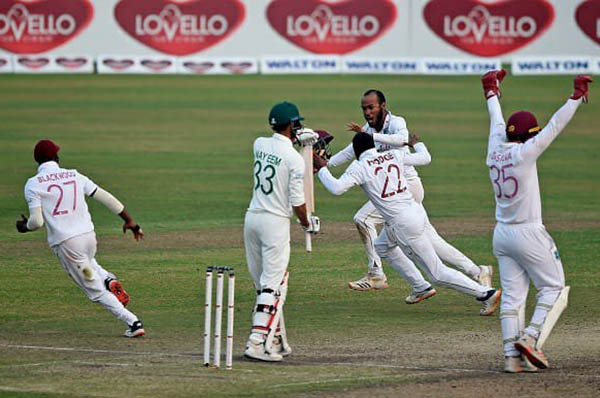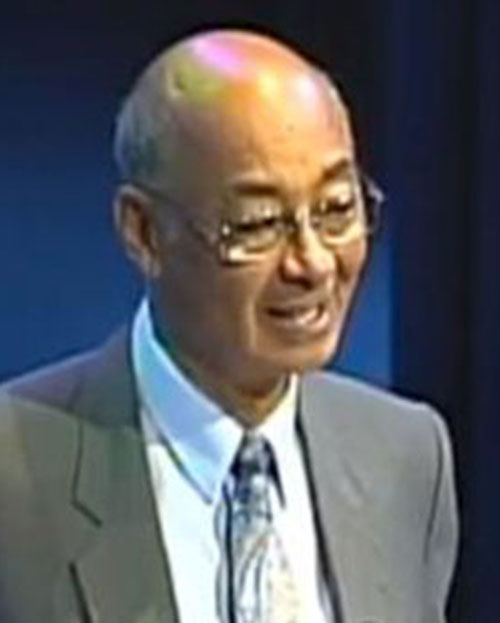What a fantastic triumph| A victory that is comparable with any of the great West Indies’ wins in the last 72 years of Test cricket; a victory that was achieved with a team of ‘rookies’.
The win was not just a triumph over their Bangladesh opponents. It was also a triumph over critics in the West Indies who regarded them as second-rate players, and particularly, over naysayers in prominent administrative positions who thought that the tour should have been cancelled. Other negative thinkers on radio programmes in the region fit into that category.
Most importantly, the players triumphed over negative critics inside their own heads that sabotage performance – self-doubts, limiting beliefs, negative thinking, and a self-image that is out of sync with winning and success.

At the highest levels, performance is regulated by self-image and self-belief not by potential.
Did the players suddenly acquire new technical skills in Bangladesh?
No.
They used the ones they had more effectively.
They managed their challenges and the situations they faced more sensibly, and they seemed to play with a different will, intent and mind-set.
Sir Garfield Sobers once said: “I feel that the most important lesson I can teach anyone is how to approach and handle the many different situations he is likely to face. He will then know how to identify them, know what to do and how to do it when he encounters them. When he practises dealing with these situations physically and mentally, the answers will come to him quickly during the game, almost automatically at times.”
Critics who try to diminish the importance of the West Indies’ victory by saying that Bangladesh is just a mediocre team should look at that team’s home record.
The last time Bangladesh lost both Tests in a home series was in 2012 (2-0) against the West Indies.
Since then, they have played at home against Australia, England, New Zealand, South Africa, Sri Lanka and Pakistan.
After the last American Super Bowl in the USA fans have been debating the greatest of all time (GOAT) of major pro sports, with many suggesting Tom Brady or Michael Jordan. Basketballer Bill Russell has been looking on with a certain degree of amusement. When it comes to winning titles, Jordan and Brady are kids compared to Russell. Russell won 11 NBA finals over his 13-year playing career with the Boston Celtics.
Russell went on to become a successful coach. He once said: “The main difference between great teams and good teams is not physical skill, but mental toughness. That is how well a team can keep its collective wits under pressure. Teams which can do this under the greatest pressure will win most of the time. Heart in champions has to do with the depth of their motivation, discipline and persistence. How well their minds and bodies react to pressure. It is concentration – that is being able to stay focused and do the best under stress, fatigue and pain.”
I think the ‘rookie’ players demonstrated some of those qualities in Bangladesh. In addition, they showed a level of fight, effort, motivation, enthusiasm, hunger for success and commitment that seemed to be lacking in some of their predecessors who declined the invitation to go to Bangladesh. We cannot commend these ‘rookies’ highly enough for putting personal needs and fears aside and choosing to risk going to Bangladesh during one of the world’s most deadly pandemics in order to represent the West Indies. The consequences of their decisions and the results of their efforts and commitment have brought enormous joy and happiness to people in the Caribbean who have been struggling, mentally and physically, to cope with the deadly Coronavirus.
In the Caribbean, we tend to play down the sacrifices and achievements of our own people while praising and glorifying those of other people. Let us not make that mistake this time.
We must also give the highest praise to the captain of the team, Kraigg Brathwaite, for his leadership. Not only did he lead from the front, especially at crucial periods during Bangladesh’s second innings of the last Test, but he also motivated other players to lead. In war, leaders do not win battles by administering or managing their soldiers into battle. They win by motivating them to fight and put their lives on the line. To be victorious, cricket captains must also motivate their players to fight for team and country.
Thousands of years ago Lao Tzu spoke about the importance of servant leadership. He said: “A leader is most effective when people barely know he exists. When his work is done, his aim fulfilled, his troops will feel they did it.”
Two nights before his assassination Gamini Dissanayake, President of the Sri Lanka Cricket Board and an eminent politician who was running for the presidency of Sri Lanka spoke to me about leadership. He said a good leader is not one who says, “I did this, I did that, or I did everything.” He takes responsibility for failures and setbacks and does not blame his people or his team publicly when things go wrong. He is one who conducts himself in such a way that when his people are asked, “Who achieved all these great things for you?” They will answer and say, “We did them together.”
For more than two decades, West Indies cricket has been crying out for that type of leadership, particularly off the field at every level of the game. Brathwaite and his players just gave a sample of what West Indies cricket can achieve and become with the right leadership. That type of leadership must start and be perfected at the regional level.
Englishman Peter Anderton claims that good leadership follows two rules. Leadership is not about you; and leadership is all about you. If leaders follow these two simple rules they cannot fail to inspire and motivate their teams and organizations.
In the 16th century, some scholars claimed that leadership was about the leader and his position and power to get things done by force, control or deceit. But the leader can only deliver results through people. Cicero the great Roman statesman and scholar who lived from 106 BC to 43 BC thought differently. He said that leadership is not about dominium but about service.
Most things about good leadership start from that first principle. It’s not about you; it’s. about the people. Leaders must have followers and there is always the temptation for the leader to cultivate more followers. Eleanor Roosevelt once said that a good leader can inspire his followers to have confidence in him. But a great leader inspires them to have confidence in themselves. He creates other leaders.
The world is too complex for any one person to do everything for himself or have all the right answers. People who think that leadership is all about them usually fail or fall short of their objectives. Leadership is about vision, implementation, team building and teamwork.
But leadership is also only about you. If the leader wants to create successful change in his environment, he must begin by changing himself. Too many leaders attempt to change others without first changing themselves. What goes on around the leader is just a reflection of who and what he is -his beliefs, thoughts, emotions and behavior. The leader can’t just sit back and expect his followers to clean up their act. He must clean up his act first. Nelson Mandela once said that he couldn’t change others until he changed himself. According to Lao Tze, mastering others is strength but mastering self is true power.
If the current leaders of West Indies cricket, particularly at the regional level want to preserve the status quo and maintain an environment of survival and mediocrity, they should persist with what they have been doing. But if they want to create an environment that will facilitate growth, development and success they must immediately commit to changing themselves, that is the pictures and thoughts that are creating a negative environment within them. Successful change must start on the inside and then move out.
Psychologist William James once said that the greatest discovery of our time is that man by changing the inner aspect of his mind can change the outer aspect of his life. The leaders in the ‘rookie’ team have just demonstrated that. They have shown what can be achieved with a change of will, intent and mindset, even when the odds are stacked against you.
Selectors throughout the region must be strong. They must base selection on factors other than the ability to hit a ball, bowl a ball or play pretty shots. They must look carefully at statistics but must also contemplate factors like work ethic, discipline, self-motivation, intent, desire to succeed, patience, persistence, the will to fight, the ability to concentrate, the capacity to cope with pressure and the ability to apply pressure to opponents, and last, but not least, commitment to team and country. And it is imperative for them to stamp out arrogance, false confidence and a sense of entitlement from the minds of the players.




